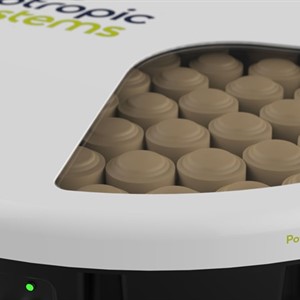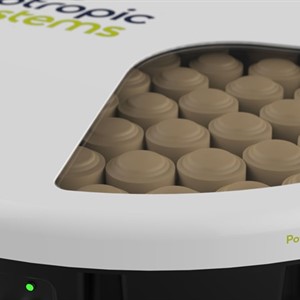Algae printed into tough material with plant-like properties
The scientists combined 3D printing with a novel bioprinting technique to print algae into living, photosynthetic materials which are also tough and resilient. “Three-dimensional printing is a powerful technology for fabrication of living functional materials that have a huge potential in a wide range of environmental and human-based applications,” said Dr Srikkanth Balasubramanian, a researcher at Delft and first author of the study. “We provide the first example of an engineered photosynthetic material that is physically robust enough to be deployed in real-life applications.” Srikkanth Balasubramanian and his colleagues started with a non-living bacterial cellulose: an organic compound produced and excreted by bacteria. Its combination of mechanical properties renders it flexible, tough…























